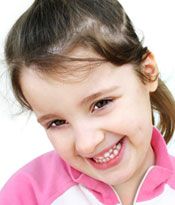Tics
Information about motor tics, vocal tics, and symptoms of nervous tic disorders
Select a Topic
What are Tics?
Tic disorders cause rapid, uncontrollable movements or sounds that a person makes for no apparent reason. They are involuntary actions and often tend to happen in sudden bouts. Usually occurring on a daily basis, tics are almost always an unwelcome experience for the sufferer.
People with tics may succeed in suppressing them for a short time, but most often not long- term. They are as difficult to suppress as the urge to sneeze! Like the sneeze, it can be very uncomfortable to suppress a tic, and many people describe a feeling of relief afterwards.
Diagnosing Tics
Tics are not always obvious and can be unpredictable in appearance. They may come and go over a period of months, change from one type to another, or disappear for no apparent reason.
Examples of tic disorders include:
- Eye blinking or darting
- Head jerking
- Finger flexing
- Sticking tongue out
- Touching the nose
- Touching other people
- Smelling objects
- Obscene gestures
- Flapping the arms
- Jumping or twirling about
- Throat clearing
- Yelping
- Sniffing
- Tongue clicking
- Uttering words or phrases out of context
- Coprolalia (vocalizing socially unacceptable words)
Types of Motor & Vocal Tics
Examples of Simple Motor Tics:
- Eye blinking or darting
- Head jerking
- Finger flexing
- Sticking tongue out
Examples of Complex Motor Tics:
- Touching the nose or other people
- Smelling objects
- Obscene gestures or flapping arms
- Jumping or twirling about
- In rare cases, self-injurious actions, including hitting or biting oneself
Examples of Simple Vocal Tics:
- Throat clearing, tongue clicking, yelping, or sniffing
Examples of Complex Vocal Tics:
- Uttering words or phrases randomly and blurting out offensive words
What Causes Tics?
The cause of tic disorders is often unknown, although research suggests that tics are more than likely linked to genetics (meaning you may be predisposed to getting a tic) or related to brain chemical abnormalities. Tics are usually not harmful, but they may vary in intensity (simple tics or complex tics) and may be worsened by tension, fatigue, illness, recent head injury, excitement, or even some medications. Many of these tics are exhibited when a person suffers from a tic disorder, known as Tourette’s Syndrome.
Help for Tics
One of the problems with treating tics is that there is no known cure for them. As a result, most treatment focuses on the management of tics.
A proper diagnosis is of the utmost importance when it comes to treating tics, as they could be the result of other diseases, such as Tourette’s Syndrome.
In some cases, prescription drugs may be prescribed, but these are largely only used when tics are linked to Tourette’s Syndrome.
There are a wide range of treatment options available for vocal tics and motor tics, which may involve counseling, learning coping techniques or medication. The best results are usually obtained by combining a selection of treatment options, depending on the individual needs of the sufferer.
Treatment Options for Managing Tics Counseling and psychotherapy
Counseling can assist a person with tics by getting to the root of where the tics stems from, be it anxiety, stress, social anxiety, fear or any other psychological condition. This can be effective in helping patients deal with their tics by raising their awareness of certain "trigger" situations.
Cognitive behavioral therapy (CBT)
Widely accepted as an evidence-based, cost-effective psychotherapy for many disorders, cognitive behavioral therapy has been used with children and adolescents to treat a variety of conditions with good success.
Coping techniques: habit reversal training (HRT)
Intended to increase tic awareness, develop a response strategy to the tic, and motivate the individual to keep a consistent and positive attitude to treatment. Controlled trials have demonstrated that HRT is an acceptable, tolerable, effective, and durable treatment for tics.
Coping techniques: relaxation
Exercise, yoga, or meditation may be useful as drug-free approaches to relieving the stress that may aggravate tics. Frequently, the tics subside with explanation, reassurance, and understanding of the condition in a supportive environment.
More Information on Tics
Tips for Concerned Parents
There are many ways you as a parent can help your child deal with tics.
Here are a few examples:
• Understand how the tics affect your child and make changes at home and school to best accommodate them.
• Keep a record of your child’s tics, (when they get worse, and the events that surround them). This may help identify triggers. Be careful not to cause your child more stress - approach this in a way that makes your child feel secure.
• Realize tics are not done on purpose. Although tics may frustrate you, do not punish your child for having tics, and try not to show any frustration you may feel. Doing so may increase your child's anxiety and cause more tics.
• Alternate household tasks with free time to allow relaxation and prevent stress.
• Encourage your child to increase responsibilities at his or her own pace.
Tips for Educators Teaching a Child with Tics
Teachers can:
• Provide more time for the pupil to take written tests.
• Provide alternatives if tics affect writing. Allow the child to use a computer, word processor, or typewriter to create assignments rather than handwriting them.
• Provide a quiet place – position a seat where there is privacy and little distraction.
• Allow for frequent rest periods when needed.
• Set a good example for accepting the pupil. It is important for teachers to discourage teasing by responding quickly and firmly whenever it occurs.
• Provide extra tutoring, learning laboratories, or special classes if needed.
